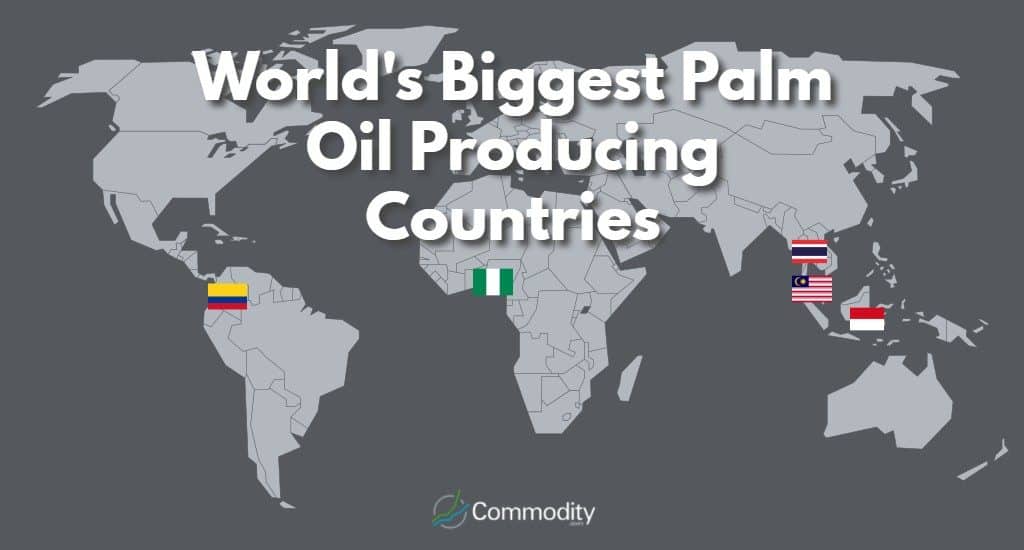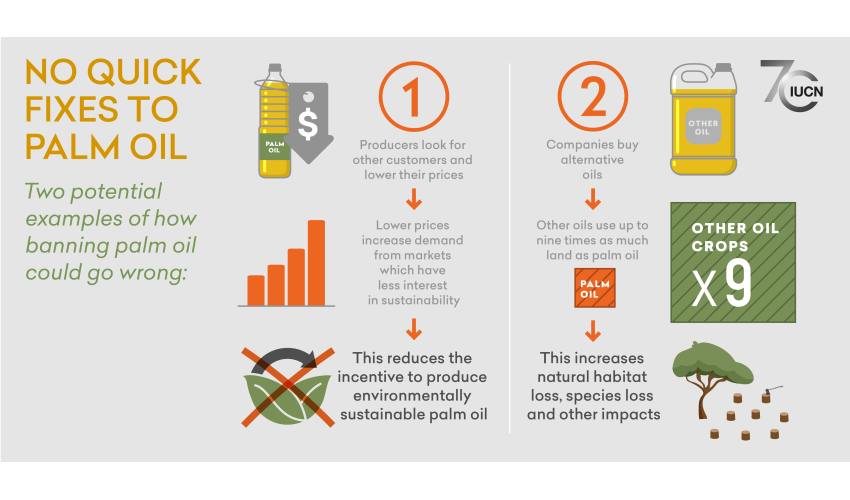Palm oil plantation, a cornerstone of global food supply chains, faces a complex web of environmental, economic, and social challenges. From deforestation and biodiversity loss to the economic realities of smallholder farmers and the influence of multinational corporations, the industry presents a multifaceted picture requiring careful consideration.
This analysis delves into the environmental impact of palm oil plantations, examining deforestation, biodiversity loss, greenhouse gas emissions, water usage, and soil erosion. It also explores the economic factors, including profitability, market trends, and the challenges faced by smallholder farmers. Social and ethical considerations, such as labor practices, community impacts, and consumer awareness, are also examined. Finally, sustainable practices, alternative oils, and case studies illustrate the path towards a more responsible palm oil industry.
Environmental Impact
Palm oil plantations, a crucial component of global food and consumer products, are intrinsically linked to significant environmental concerns. The expansion of these plantations often comes at the expense of vital ecosystems, contributing to biodiversity loss, deforestation, and greenhouse gas emissions. Sustainable practices are crucial to mitigating these impacts and ensuring the long-term viability of both the industry and the environment.
The relentless pursuit of palm oil production has led to widespread deforestation, a critical environmental issue. Clearing native forests for plantations results in the loss of invaluable carbon sinks and habitat for numerous species. The conversion of diverse ecosystems to monocultures of oil palm compromises the intricate web of life that depends on the original forest structure.
Deforestation Associated with Palm Oil Plantations
The conversion of natural habitats to palm oil plantations is a significant driver of deforestation globally. This process often involves the clearing of primary forests, which are crucial for carbon sequestration and biodiversity. The loss of these forests has substantial consequences for the global climate and the survival of numerous plant and animal species. Clearing primary forests releases large quantities of stored carbon into the atmosphere, contributing to climate change.
Impact on Biodiversity and Ecosystems
Palm oil plantations frequently replace diverse ecosystems with a single crop. This significant shift in land use has devastating consequences for biodiversity. The loss of native species, including endangered flora and fauna, is a direct result of habitat destruction and fragmentation. The decline in insect populations and other supporting species further disrupts the natural balance of the ecosystem. The loss of habitat also negatively impacts the resilience of the area against natural disasters and climate change impacts.
Role of Palm Oil Plantations in Greenhouse Gas Emissions
Deforestation associated with palm oil plantations plays a substantial role in greenhouse gas emissions. The removal of trees releases the carbon stored in the biomass, leading to an increase in atmospheric carbon dioxide, a major greenhouse gas. Furthermore, the production process itself, including fertilizer use and transportation, contributes to emissions. The carbon footprint of palm oil production needs to be addressed through sustainable practices to mitigate its contribution to climate change.
Water Usage and Water Quality Issues
Palm oil plantations require substantial amounts of water for irrigation and processing. This increased demand can strain local water resources, potentially leading to water scarcity for communities and ecosystems. The use of fertilizers and pesticides in plantations can also contaminate water sources, impacting water quality and harming aquatic life. Proper water management practices are crucial to mitigate these negative impacts.
Sustainable Water Management in Palm Oil Plantations
Implementing sustainable water management practices in palm oil plantations is essential to ensure water security and avoid water quality issues. Strategies include optimizing irrigation techniques, implementing water-efficient irrigation systems, and promoting rainwater harvesting. Stricter regulations on pesticide and fertilizer use are also critical to maintaining water quality. Efficient water use practices can help reduce the strain on local water resources.
Potential for Soil Erosion and Degradation
The conversion of forests to palm oil plantations often leads to soil erosion and degradation. The removal of protective vegetation cover exposes the soil to the elements, increasing erosion rates. This process can lead to nutrient loss, reduced soil fertility, and decreased agricultural productivity in the long term. Sustainable land management practices, such as agroforestry, can help mitigate soil erosion and degradation.
Impact on Local Communities and Indigenous Peoples
The expansion of palm oil plantations can have significant negative impacts on local communities and indigenous peoples. Displacement from their ancestral lands, loss of livelihoods, and conflicts over land use are common consequences. Protecting the rights and needs of local communities and indigenous peoples is crucial for ensuring the social sustainability of palm oil production.
Comparison of Sustainable Land Management Methods
| Method | Description | Environmental Impact | Social Impact | Economic Viability |
|---|---|---|---|---|
| Agroforestry | Integrating trees into agricultural systems | Improved soil health, biodiversity, carbon sequestration | Enhanced livelihoods for local communities | Potentially increased long-term yields |
| Conservation Agriculture | Minimizing soil disturbance, crop diversification | Reduced erosion, improved water retention | Sustainable farming practices | Potential for increased profitability |
| Integrated Pest Management | Using natural methods to control pests | Reduced pesticide use, improved water quality | Healthier environment for local communities | Lower input costs, improved yields |
Sustainable land management practices, such as agroforestry and conservation agriculture, can significantly reduce the negative environmental and social impacts of palm oil production.
Economic Factors
Palm oil’s economic impact extends far beyond the plantation gates, intertwining with local communities, global markets, and multinational corporations. While offering significant potential for economic growth, the industry also presents complex challenges, particularly for smallholder farmers. Understanding these nuances is crucial for developing sustainable and equitable palm oil production models.
The global palm oil market is characterized by significant volatility and fluctuating prices, impacting both producers and consumers. This dynamic environment necessitates a nuanced understanding of the economic drivers shaping the industry, particularly the interplay between supply, demand, and market forces.
Economic Benefits for Local Communities
Palm oil plantations can generate substantial revenue for local communities through employment opportunities, tax revenues, and the development of related infrastructure. This economic activity can contribute to poverty reduction and improved living standards, especially in rural areas. However, the benefits need to be distributed equitably, and sustainable practices are essential to ensure long-term economic viability.
Global Palm Oil Market Trends
The global palm oil market is influenced by factors such as weather patterns, global demand, and geopolitical events. Fluctuations in these variables can lead to price volatility, impacting both producers and consumers. Demand from the food and biofuel sectors often drives market dynamics, making understanding these trends critical for long-term planning. For example, increasing demand for biofuels can lead to higher palm oil prices, while unforeseen events like regional conflicts can disrupt supply chains.
Challenges for Smallholder Farmers
Smallholder farmers often face significant economic hurdles in palm oil production, including limited access to finance, technology, and market information. These challenges can hinder their ability to compete with larger, more established producers, limiting their profits and potentially impacting their long-term sustainability. Lack of access to credit, for example, can make it difficult to invest in necessary inputs like fertilizers and pesticides.
Role of Multinational Corporations
Multinational corporations play a pivotal role in the palm oil industry, often controlling significant portions of the supply chain. Their influence extends from plantation management to processing and distribution, affecting market prices and influencing production practices. This influence necessitates careful consideration of their responsibilities towards environmental protection and fair labor practices, ensuring ethical sourcing and sustainable production.
Profitability Comparison: Sustainable vs. Conventional
Sustainable palm oil production, while often perceived as more costly in the short term, can offer long-term profitability through enhanced brand reputation, reduced risks of environmental and social issues, and potential premium pricing. This premium can offset initial investment costs, and in some cases, even enhance overall profitability in the long run. The financial incentives for sustainable practices are increasing, with some consumers willing to pay a premium for ethically sourced products.
Costs and Benefits of Sustainable Farming Practices
| Sustainable Farming Practice | Costs | Benefits |
|---|---|---|
| Agroforestry | Higher initial investment in tree planting and maintenance | Improved soil health, biodiversity, and carbon sequestration; potential for multiple income streams |
| Integrated Pest Management | Investment in training and implementation | Reduced pesticide use, lower health risks, and improved yields |
| Certification and Traceability Systems | Certification costs and compliance requirements | Enhanced brand reputation, access to premium markets, and reduced risk of reputational damage |
Palm Oil in Global Food Supply Chains
Palm oil is a ubiquitous ingredient in numerous food products, from processed foods to cosmetics. Its role in global food supply chains is substantial, impacting everything from consumer products to agricultural economies. This widespread use makes it essential to address sustainability concerns throughout the supply chain to ensure responsible production and consumption practices.
Economic Incentives for Sustainable Practices
- Government subsidies for sustainable certification and implementation of sustainable practices can incentivize farmers to adopt these methods.
- Consumer demand for sustainable products can drive higher prices for certified palm oil, creating economic incentives for producers.
- Carbon credits for reduced deforestation and emissions can provide additional revenue streams for sustainable palm oil plantations.
- Investment in research and development of sustainable technologies and practices can lead to more efficient and environmentally friendly production methods.
Social and Ethical Considerations: Palm Oil Plantation
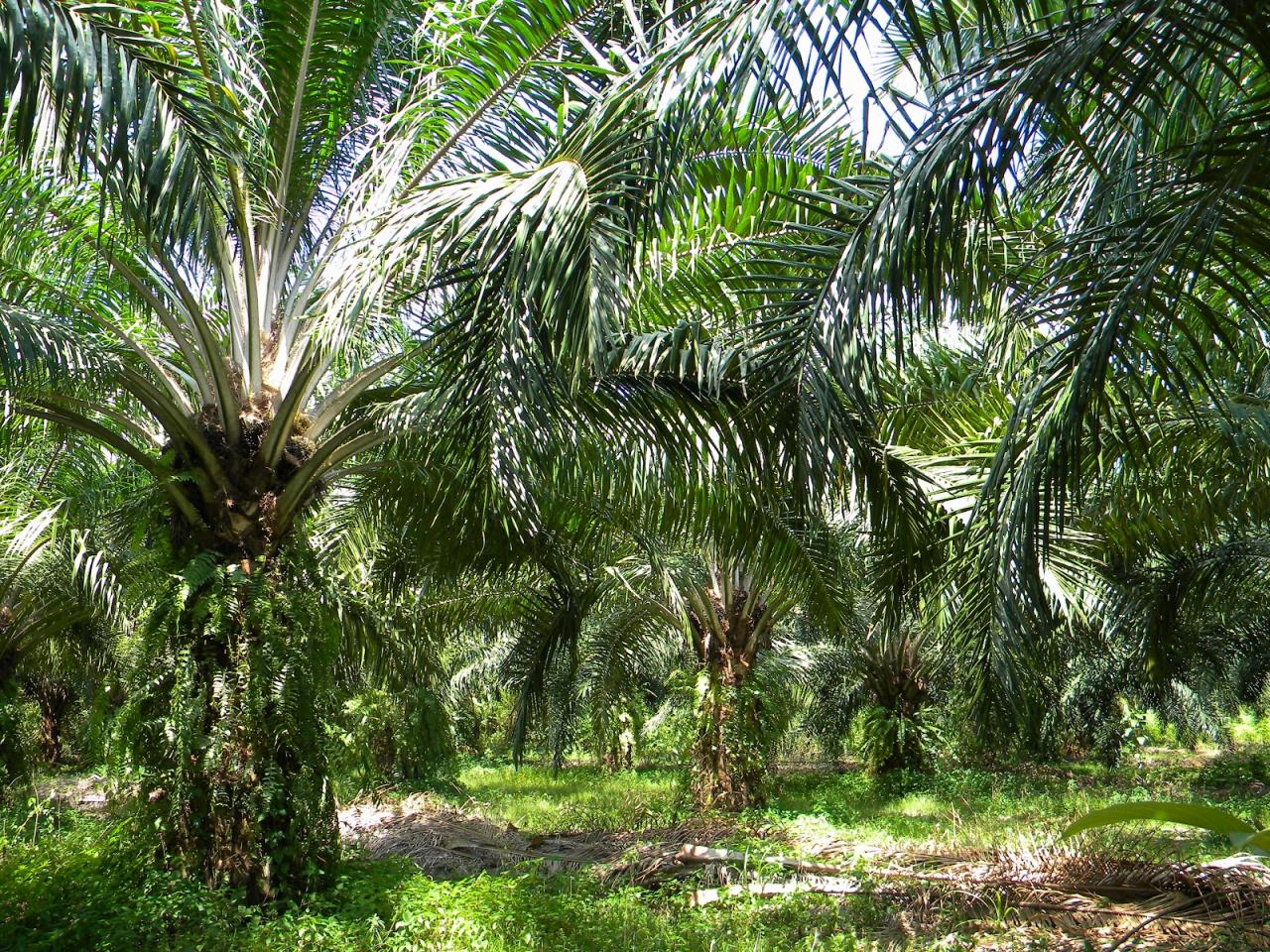
The palm oil industry, while economically vital, faces significant social and ethical challenges. These concerns range from labor practices and community impacts to consumer awareness and industry transparency. Addressing these issues is crucial for ensuring the long-term sustainability of palm oil production and fostering a positive relationship with affected communities.
Labor Practices in Palm Oil Plantations
Ensuring fair wages and safe working conditions is paramount in palm oil production. Many plantations employ workers from migrant communities, raising concerns about potential exploitation and vulnerability. Conditions vary greatly across plantations, with some adhering to international labor standards while others do not. Lack of enforcement mechanisms and the opaque nature of some supply chains make it difficult to monitor and address these issues effectively.
Impact on Local Communities and Indigenous Peoples’ Rights
Palm oil expansion often leads to land displacement and dispossession of indigenous communities and local populations. The loss of traditional lands and livelihoods has profound social and cultural implications. These communities often lack adequate consultation and compensation for the impacts of development projects. Indigenous groups’ rights to self-determination and traditional resource management are frequently disregarded. A strong commitment to free, prior, and informed consent (FPIC) processes is vital to ensure that local communities are not marginalized.
Social Implications of Land Displacement
The displacement of communities due to palm oil plantations has far-reaching social implications. The disruption of established social structures and traditional ways of life can lead to social unrest and conflict. Loss of access to resources, including land for farming and gathering, can result in poverty and food insecurity. These social repercussions often compound existing inequalities and create significant challenges for affected communities. The lack of adequate resettlement plans and support services can further exacerbate these issues.
Consumer Awareness and Attitudes Towards Palm Oil
Consumer awareness and attitudes towards palm oil are complex and multifaceted. Some consumers are increasingly concerned about the environmental and social impacts of palm oil production. Others remain largely unaware of these issues or have differing priorities. Consumer demand for sustainable and ethical palm oil products is growing, pushing companies to implement more transparent and responsible sourcing practices. Marketing campaigns and labeling initiatives play a significant role in educating consumers about the different sourcing options and their impacts.
Community Engagement Initiatives in Palm Oil Plantations
Positive community engagement initiatives in palm oil plantations are crucial to mitigating negative impacts. These initiatives can include supporting local schools and healthcare facilities, providing job opportunities for local residents, and engaging in dialogue with community leaders. Sustainable development projects can help address issues like infrastructure development, community empowerment, and economic diversification. Transparency and communication with affected communities are vital components of successful community engagement.
Role of Transparency and Accountability in the Palm Oil Industry
Transparency and accountability are essential for fostering trust and ensuring ethical sourcing practices. A lack of transparency can obscure unsustainable practices and make it difficult for consumers and stakeholders to hold companies accountable. Publicly available information on sourcing practices, environmental impact assessments, and labor conditions is critical for building trust and promoting responsible production. Clear traceability systems throughout the supply chain are necessary for ensuring accountability and providing assurance to consumers.
Social Responsibility Standards in Palm Oil Plantations
Implementing social responsibility standards in palm oil plantations requires a multi-faceted approach. Companies can work with certification bodies to establish and enforce standards that cover fair wages, safe working conditions, community engagement, and environmental protection. The standards should also address the rights of indigenous peoples and the preservation of traditional knowledge. Monitoring and evaluation systems are essential to ensure compliance and track progress.
Ethical Sourcing Practices for Palm Oil
| Certification Scheme | Key Features | Strengths | Weaknesses |
|---|---|---|---|
| RSPO (Roundtable on Sustainable Palm Oil) | Focuses on environmental and social criteria, including deforestation prevention, community engagement, and fair labor practices. | Widely recognized and accepted standard, promotes transparency. | Implementation varies, some concerns remain about effectiveness in all areas. |
| Fairtrade | Prioritizes fair prices, decent working conditions, and community development. | Strong emphasis on social equity, supporting smallholder farmers. | May be less focused on environmental aspects compared to RSPO. |
| UTZ Certified | Focuses on sustainability, including environmental protection, social development, and responsible farming practices. | Widely recognized, accessible to smallholders. | Can vary in rigor and effectiveness compared to RSPO or Fairtrade. |
Sustainable Practices and Alternatives
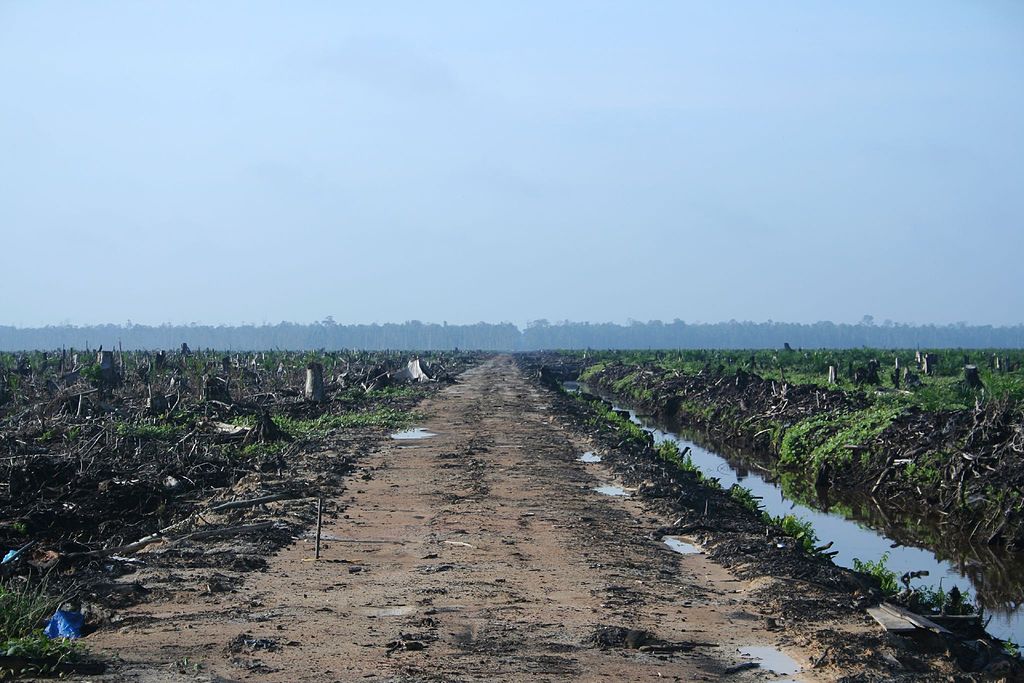
Palm oil’s environmental impact has spurred a global push for sustainable alternatives. This necessitates a multifaceted approach, encompassing innovative production methods, robust certification schemes, and consumer engagement. The quest for sustainable palm oil extends beyond mere environmental considerations, impacting economic viability, social equity, and ethical sourcing.
Sustainable Palm Oil Production Methods
Various techniques are employed to mitigate the environmental footprint of palm oil cultivation. These methods aim to balance production needs with environmental preservation. One prominent approach involves the use of agroforestry systems, where palm trees are intercropped with other plants. This practice enhances biodiversity and soil health. Another technique involves the implementation of water-efficient irrigation systems to minimize water consumption in the plantations. These efforts contribute to responsible resource management. Further enhancements include integrated pest management programs, which reduce reliance on harmful pesticides, safeguarding both human health and the ecosystem.
Role of Certification Schemes
Certification schemes play a crucial role in ensuring sustainable palm oil production. These schemes establish standards and criteria that producers must meet to be certified as sustainable. The Roundtable on Sustainable Palm Oil (RSPO) is a prominent example, setting guidelines for responsible palm oil production. Compliance with these standards often requires farmers to demonstrate adherence to environmental safeguards, social responsibility, and economic viability.
Organizations Promoting Sustainable Palm Oil
Several organizations champion sustainable palm oil practices globally. These organizations include the Roundtable on Sustainable Palm Oil (RSPO), the Malaysian Palm Oil Board (MPOB), and the Indonesian Palm Oil Association (GAPKI). These groups actively promote best practices, provide training, and offer certifications to help farmers and companies transition to sustainable production methods.
Innovative Technologies
Technological advancements are enhancing sustainable palm oil production. Precision agriculture techniques, employing sensors and data analysis, allow for optimized resource use, reducing waste and maximizing yields. Genetic engineering research is exploring disease-resistant palm varieties, reducing the need for chemical interventions. Further development includes the use of drones for aerial monitoring, enabling early detection of potential environmental issues.
Alternative Oils and Fats
Palm oil faces competition from alternative oils and fats, such as soybean oil, sunflower oil, and coconut oil. The selection of alternatives hinges on factors such as production cost, nutritional value, and consumer preferences. These alternatives may also have varying environmental impacts. Biodiesel production from various sources, like algae, also presents a potential alternative fuel source.
Consumer Choices
Consumer demand significantly influences the market for sustainable palm oil. Consumers increasingly seek products with a lower environmental footprint, driving the demand for certified sustainable palm oil. Supporting companies committed to sustainable palm oil practices is essential.
Research and Development
Research and development play a vital role in advancing sustainable palm oil production. Ongoing research focuses on developing drought-resistant and disease-resistant palm varieties, enhancing yield and reducing environmental impact. Studies explore new processing methods that minimize waste and maximize product recovery.
Key Criteria for Sustainable Palm Oil Certification
| Criteria | Description |
|---|---|
| Environmental Impact | Minimizing deforestation, preserving biodiversity, and reducing greenhouse gas emissions. |
| Social Responsibility | Ensuring fair labor practices, respecting indigenous rights, and promoting community development. |
| Economic Viability | Supporting sustainable livelihoods for farmers and workers. |
| Traceability | Establishing clear supply chains to track palm oil from origin to consumer. |
| Compliance with Standards | Adherence to established certifications, such as RSPO, which Artikels specific criteria. |
Case Studies and Examples
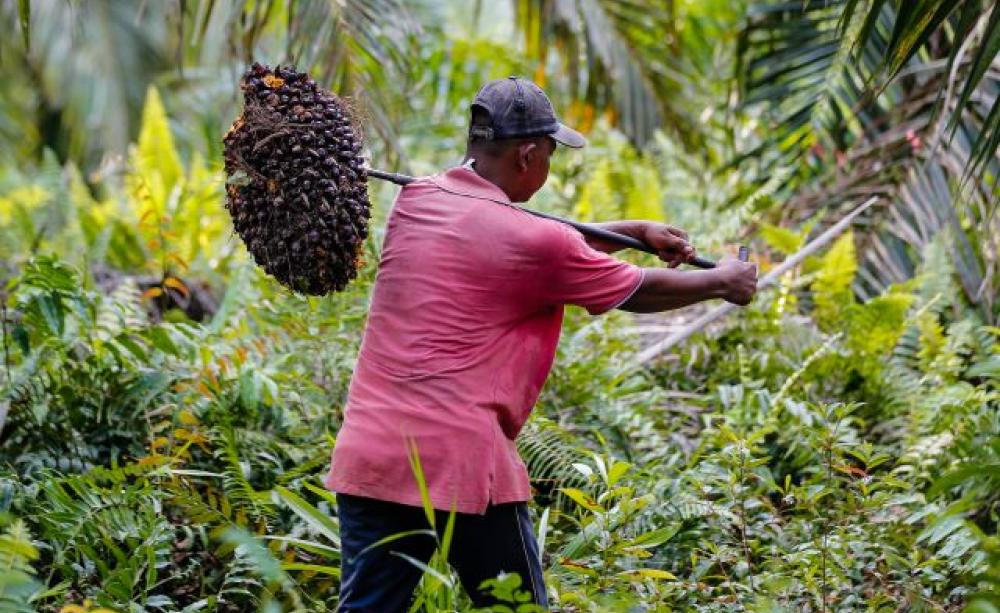
Palm oil’s global footprint is substantial, impacting economies, environments, and communities worldwide. Examining successful and unsuccessful models of palm oil production is crucial for developing sustainable practices and mitigating negative consequences. Understanding the diverse experiences provides a nuanced perspective on the challenges and opportunities within the industry.
The following case studies highlight various facets of palm oil production, from sustainable models to environmental pitfalls and community responses. They demonstrate the complex interplay of environmental, economic, and social factors in shaping the future of palm oil.
A Successful Sustainable Palm Oil Plantation: The example of the Malaysian Sustainable Palm Oil (MSPO) certification
The Malaysian Sustainable Palm Oil (MSPO) certification program stands as a prominent example of a successful initiative in promoting sustainability within the palm oil industry. MSPO provides a comprehensive set of standards for sustainable palm oil production, encompassing environmental, social, and economic aspects. By adhering to these standards, producers can demonstrate their commitment to responsible practices, ensuring that their operations minimize environmental damage and protect biodiversity. The program has seen significant adoption by numerous plantations across Malaysia, showcasing the potential for positive change within the industry. This demonstrates a model for a more sustainable palm oil supply chain.
A Plantation Facing Significant Environmental Challenges: Deforestation in Indonesian Borneo
Deforestation, driven by expansion of palm oil plantations in Indonesian Borneo, has resulted in significant environmental challenges. The loss of rainforest habitat has led to biodiversity loss, increased greenhouse gas emissions, and disruption of local ecosystems. This exemplifies the detrimental effects of unsustainable palm oil production on delicate environmental balances. Furthermore, the rapid deforestation often occurs without adequate consultation with indigenous communities or proper environmental impact assessments. This demonstrates the importance of stringent environmental regulations and community engagement.
A Community Affected by Palm Oil Plantation Development: The impact on indigenous communities in Papua New Guinea
Palm oil plantation expansion in Papua New Guinea has caused considerable disruption to indigenous communities. Displacement, loss of traditional lands, and conflicts over resource use are common occurrences. The impact on cultural heritage and traditional livelihoods are severe. Furthermore, a lack of transparency in land acquisition and compensation processes can lead to social unrest. This case underscores the need for equitable and participatory approaches to plantation development.
Methods Used to Evaluate the Sustainability of Palm Oil Plantations
Evaluating the sustainability of palm oil plantations necessitates a multifaceted approach. Third-party certifications, such as RSPO (Roundtable on Sustainable Palm Oil), play a vital role in assessing compliance with environmental and social standards. These certifications often incorporate criteria related to deforestation, biodiversity conservation, and community engagement. Independent audits and assessments, coupled with transparent reporting mechanisms, are critical in verifying the claimed sustainability of plantations.
Different Countries’ Approaches to Regulating Palm Oil Plantations
Regulations governing palm oil plantations vary significantly across countries. Some countries, such as Malaysia, have implemented specific policies and regulations to manage deforestation and promote sustainable practices. Conversely, other countries may have weaker or less enforced regulations, which can lead to environmental degradation and social injustices. These differing approaches underscore the need for international collaboration and harmonized standards in the palm oil sector.
Case Study Showcasing the Implementation of Fair Trade Practices in Palm Oil Production
Fair trade initiatives in palm oil production aim to ensure that producers and workers receive fair compensation and benefit from the sale of their products. Fairtrade certification can help improve working conditions, empower communities, and enhance transparency in the supply chain. A successful implementation of fair trade principles can lead to a more equitable and just palm oil industry.
Case Study Illustrating the Use of Alternative Technologies in Sustainable Palm Oil Production
Innovative technologies offer the potential for more sustainable palm oil production. For example, the development of genetically modified palm trees with enhanced yield and reduced environmental impact is being investigated. These technologies can contribute to minimizing land use, enhancing productivity, and mitigating environmental pressures. However, ethical considerations surrounding the use of such technologies need careful consideration.
Social and Environmental Impact of a Specific Palm Oil Company’s Practices: Example of a major Indonesian Palm Oil Producer, Palm oil plantation
Several Indonesian palm oil companies have faced scrutiny regarding their environmental and social impacts. These companies may be accused of deforestation, peatland destruction, and violations of indigenous rights. Detailed analysis of their supply chains and operational practices is crucial to understand the extent of their impact. Companies should be held accountable for their actions and implement sustainable practices.
Intensified palm oil plantations are driving deforestation concerns globally. However, the question of whether palm oil itself is a healthy choice for consumption is a complex one, demanding careful consideration. The nutritional aspects of palm oil, including its fatty acid profile, are crucial factors in determining its health impact. For a deeper dive into the nutritional properties of palm oil and its potential health effects, see is palm oil healthy.
Ultimately, sustainable practices in palm oil cultivation are paramount to balancing economic needs with environmental protection.

